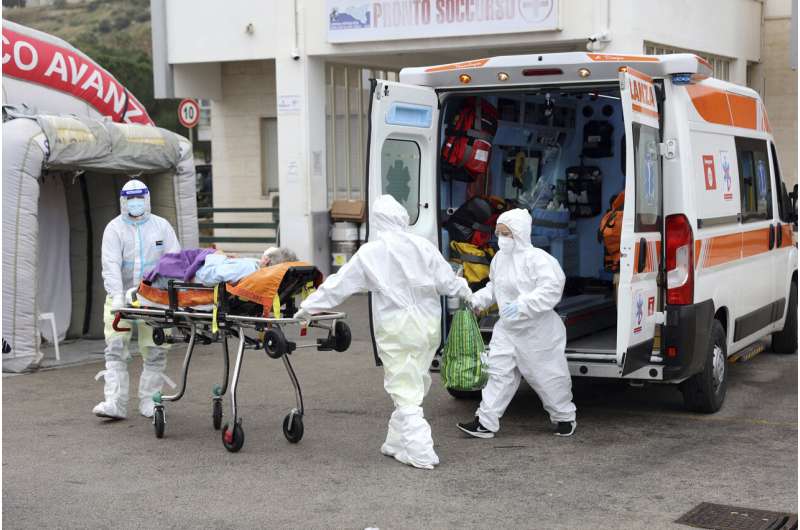
Troops have been deployed to London hospitals. Health care workers infected with COVID-19 are treating patients in France. The Netherlands is under a lockdown, and tented field hospitals have gone up in Sicily.
Nations across Europe are scrambling to prop up health systems strained by staff shortages blamed on the new, highly transmissible omicron variant of the coronavirus, which is sending a wave of infections crashing over the continent.
“Omicron means more patients to treat and fewer staff to treat them,” Stephen Powis, national medical director at Britain’s National Health Service, said Friday.
The World Health Organization said Thursday that a record 9.5 million COVID-19 cases were tallied globally over the last week, a 71% increase from the previous 7-day period. However, the number of weekly recorded deaths declined.
While omicron seems less severe than the delta variant it has swiftly replaced, especially among people who have been vaccinated, WHO Director-General Tedros Adhanom Ghebreyesus cautioned against treating it lightly.
“Just like previous variants, omicron is hospitalizing people, and it’s killing people,” he said. “In fact, the tsunami of cases is so huge and quick that it is overwhelming health systems around the world.”
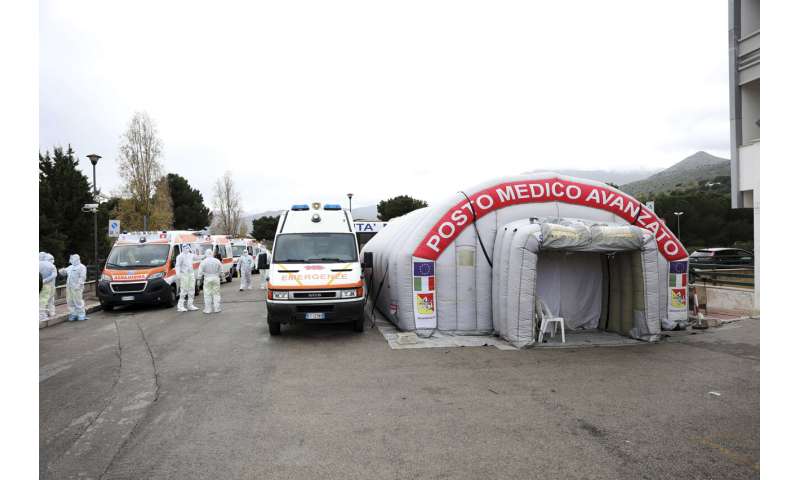
That was evident Friday in London, where some 200 military personnel, including 40 medics, were being deployed to hospitals struggling to deliver vital care amid “exceptional” staff shortages blamed on the number of workers who are ill or isolating because of COVID-19. Next week, another 150 troops will help an ambulance service in northwest England.
On a visit to King’s College Hospital London, Health Secretary Sajid Javid warned that hospital admissions were rising and that the NHS was facing a “rocky few weeks ahead.”
A total of 39,142 NHS staff members at hospital trusts in England were absent for COVID-19 reasons on Jan. 2, up 59% from the previous week, according to figures released by the National Health Service in England.
The U.K. also has changed its coronavirus testing rules to reduce the amount of time people who test positive have to isolate.
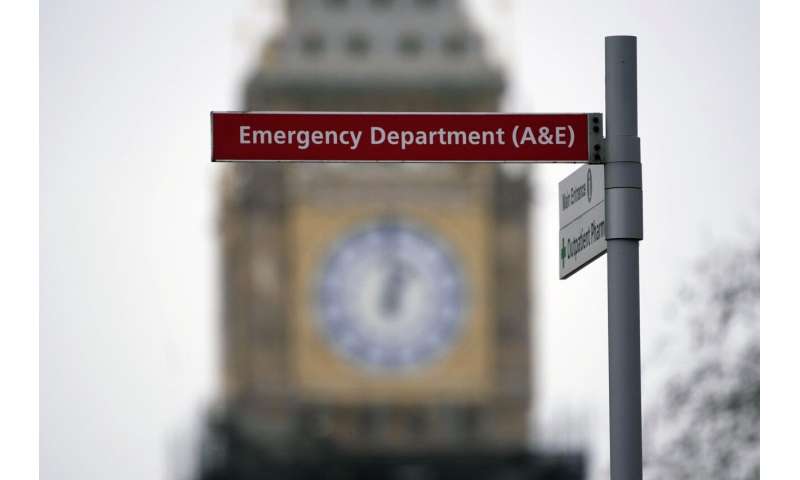
Germany’s leaders agreed Friday to toughen requirements for entry to restaurants and bars, and decided to shorten quarantine and self-isolation periods.
French authorities this week began allowing health care workers who are infected with the coronavirus but have few or no symptoms to keep treating patients rather than self-isolate.
France announced a staggering 332,252 daily virus cases on Wednesday, Europe’s highest-ever single-day confirmed infection count.
The Netherlands has been in a strict lockdown for weeks, a move designed to ease pressure on overburdened hospitals and buy time for a slow-starting vaccination booster campaign to gather pace. Despite the lockdown, infections hit record numbers in the country this week.
In Palermo, Sicily, auxiliary facilities were set up in front of three hospitals to relieve the pressure on emergency rooms and to allow ambulance crews to get patients into beds instead of waiting in the parking lot.
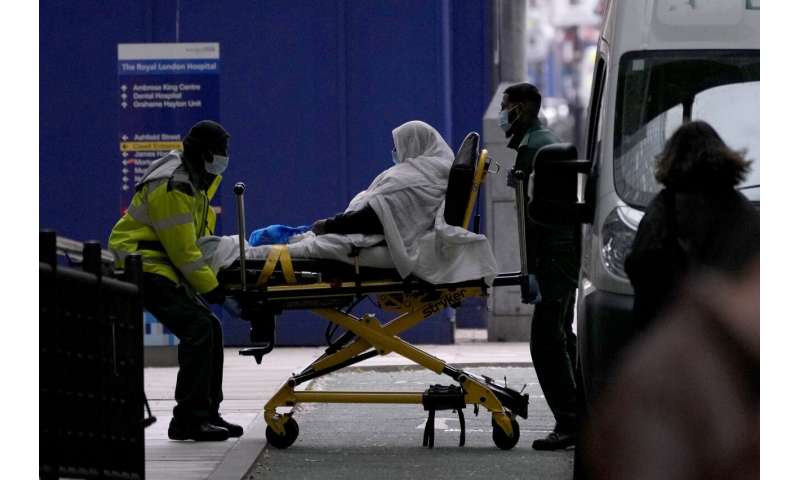
Staff in white medical overalls and masks pushed gurneys from ambulances into the tents.
Tiziana Maniscalichi, director of Cervello and Civico Palermo hospitals, said most of those hospitalized with serious symptoms were not vaccinated.
“We are absolutely under pressure,” Maniscalichi told The Associated Press. “There are at least 70 new cases a day to be hospitalized. We were forced to set up an additional emergency unit in a tent, because the capacity of the ordinary emergency unit was not enough.”
Italy is reporting record daily new coronavirus infections, hitting 219,000 new cases on Thursday. Authorities believe the peak in this surge is still two to three weeks away.
The hospital system already is swamped in the southern Italian city of Naples.
“We risk the collapse of the national healthcare service,” said the head of the local hospital doctors’ association, Bruno Zuccarelli.
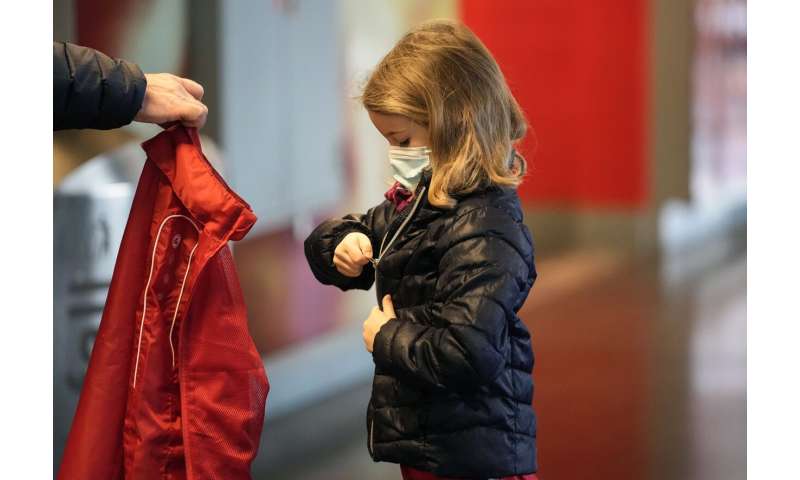
“We could be seeing a repeat of the scenes of October and November 2020 which were very, very dangerous,” he added.
Greece’s government on Friday issued a civil mobilization order that will take effect next Wednesday and obliges some doctors in the private sector to support the state health service during am omicron-driven surge in four northern regions where state hospitals are suffering acute staffing shortages.
In the U.K., which reported nearly 180,000 new cases on Thursday alone, omicron’s advance has forced many workers to stay home and prompted the government to send in the troops.
Health service leaders said the military deployment highlighted how the country is battling to stay on top of the pandemic.
“We have never known this level of staff absence before,” Chaand Nagpaul, council chairman of the British Medical Association, told Sky News.

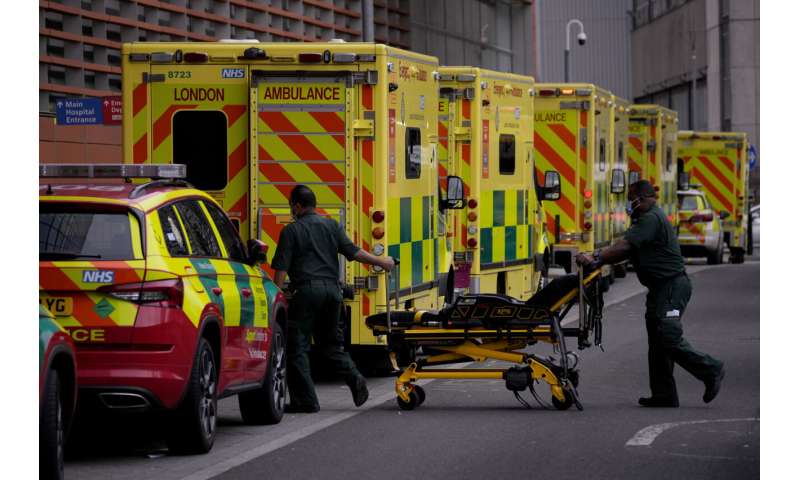
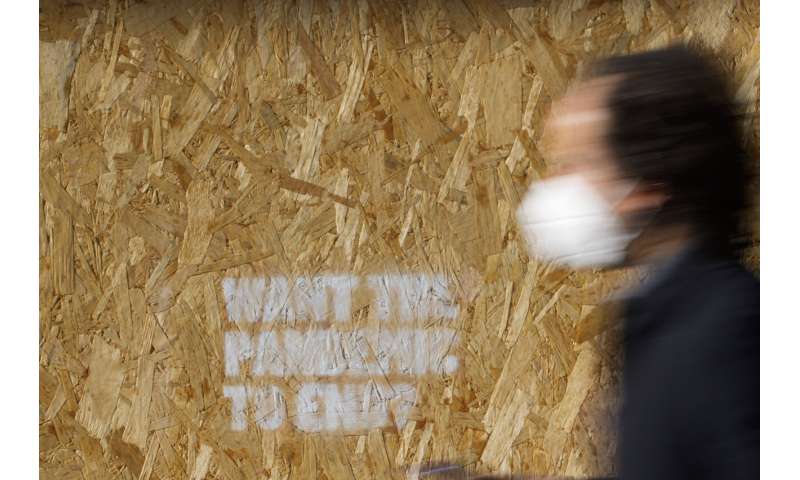
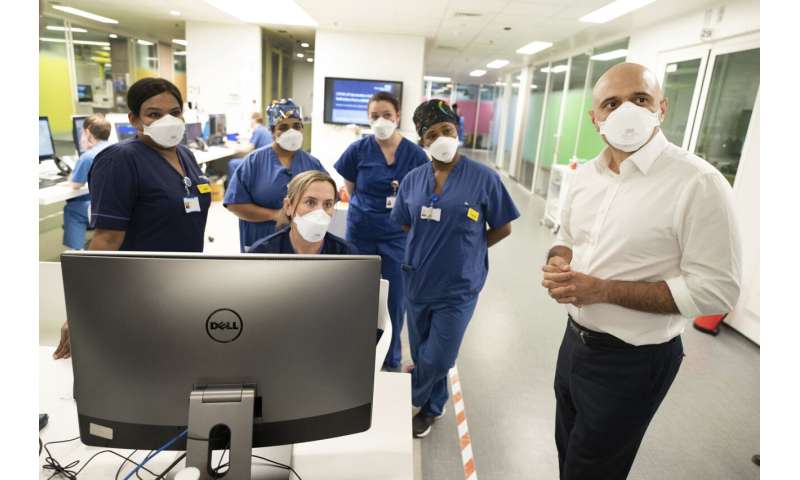
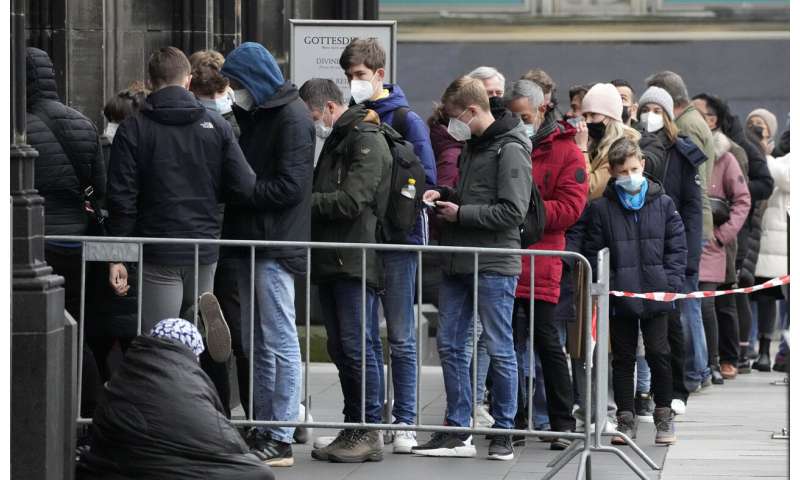
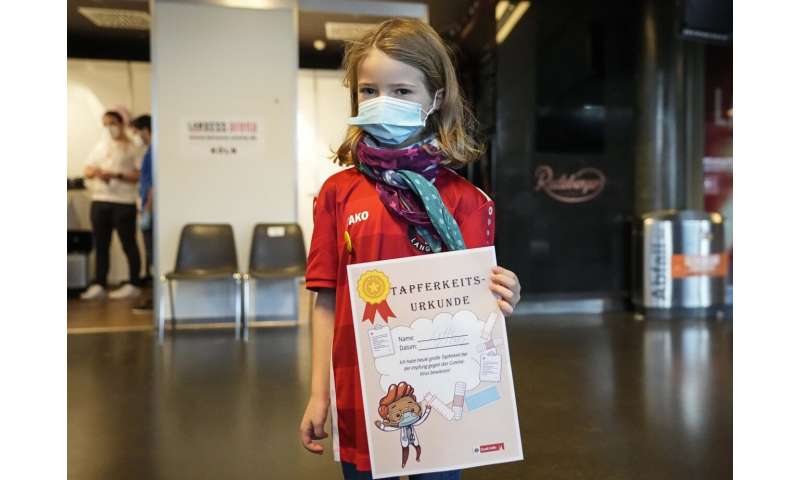
Air Commodore John Lyle told the BBC that the military remains in discussions about providing support for the NHS in other parts of the country.
Nagpaul urged action to bring down infections and better protect health care workers against the omicron variant, saying it was important that “the government doesn’t just wait to ride this out, because every day people are suffering.”
In Naples, doctors’ leader Zuccarelli said the mutations in the virus since Italy was hammered in the first wave in 2020 means children and even babies are now being hospitalized with COVID-19.
Source: Read Full Article


